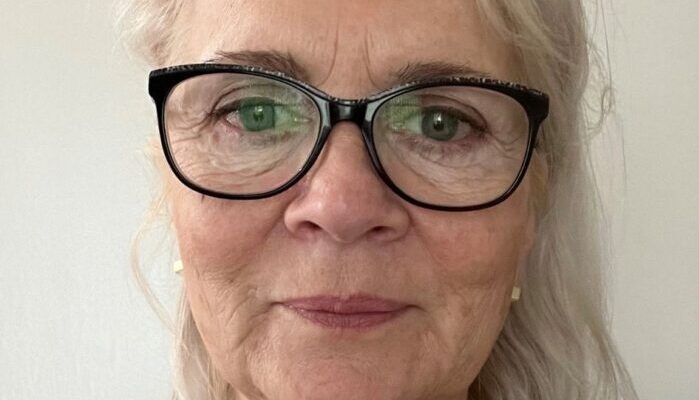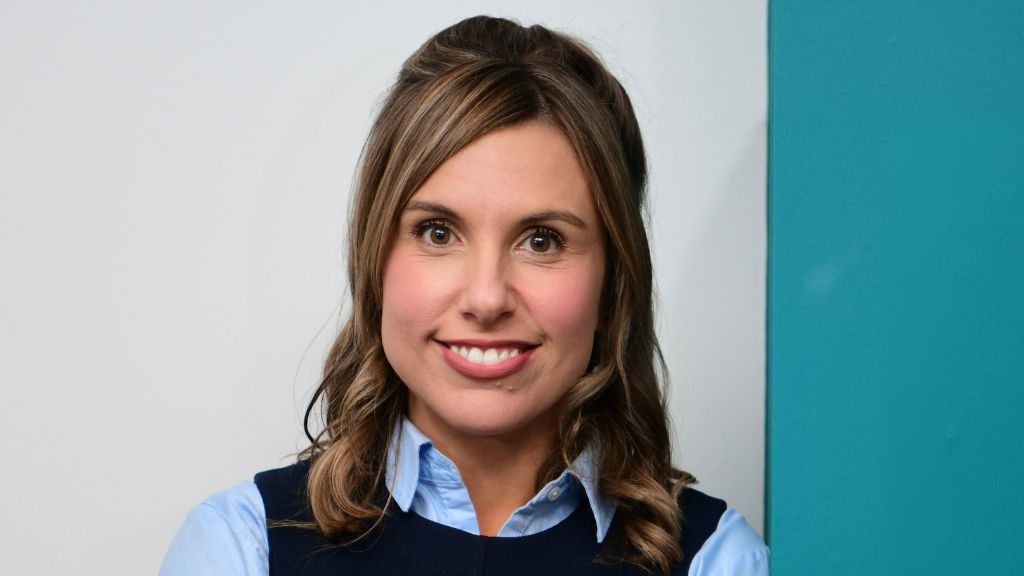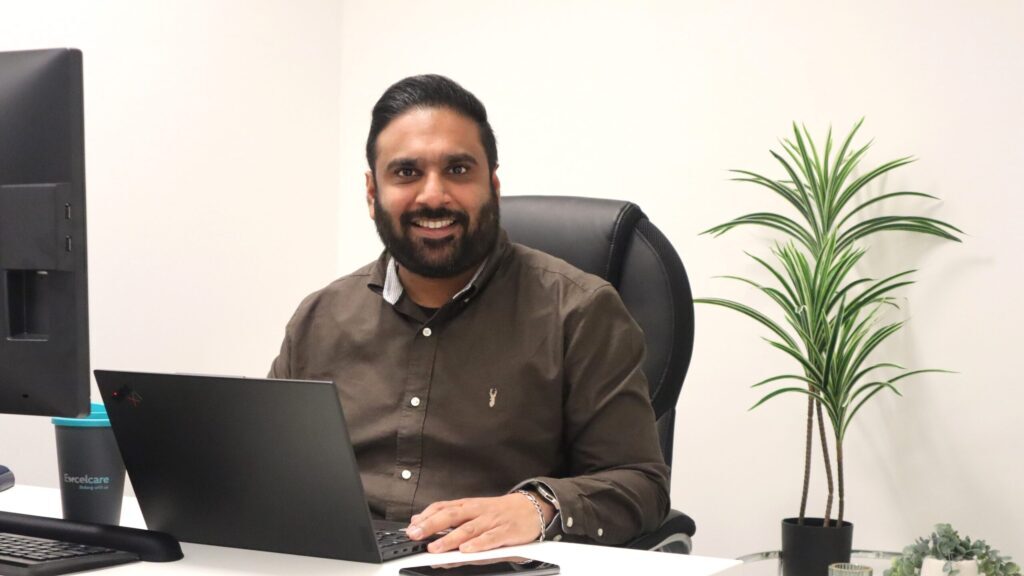#FacingtheFuture: Ed Balls and Martin Green address Care England conference
Chief executive Professor Martin Green opened Care England’s first in person conference since the start of the pandemic by praising the commitment and dedication of the social care workforce.

The event, held on 23 March at Church House Conference Centre near Westminster, focused on the action taking place in key areas of the sector to further improve the quality of social care.
“We owe them a debt of gratitude,” said Green, saying that the sector “couldn’t face the future” without the hard work of carers through Covid-19. He then presented a hard hitting and emotional video montage of frontline carers reporting on their experiences over the last two years to mark the ‘Social Care Day of Remembrance and Reflection’.
Green concluded that the legacy of people who have given so much must be a better future, and we must do everything we can to recognise the professionalism and sacrifice during this difficult time.
The importance of investment in future technology
NHS England and NHS Improvement’s national director of transformation Dr Tim Ferris delivered a virtual presentation focussing on the potential for the NHS to work in very close collaboration with the care sector delivering optimal care across the whole continuum of care: “The challenges in front of us are daunting but we are well poised to take them on”.
Ferris said that things like data, digital technology and life sciences are coming together in a nice way to set the sector up for success, building on strengths and synergies so the “sum is greater than its parts”.
Integrated care systems (ICS) that are forming across the country are bringing together particular sets of capabilities at the best time, according to Ferris, who said it is important to try to build a ‘hinge’ understanding and deliverance system.
Reflecting on the bigger policy picture, Ferris said he is seeing a microcosm of what could happen across all ICSs. “All the people involved in the care of a patient are in the same web or app page to understand the patient’s most up to date needs,” he added. “The opportunity to deliver on that is a big challenge, underpinned by digital and data systems that make us communicate more easily, and understand how we’re doing, where we’re doing not as well as we would like and real-time data signalling how we can do better.”
He added that the use of data to understand the needs of patients in the community and distribution of resources is an extraordinary opportunity and that the sector needs to get digital systems in place to extract and display information, focussing on ‘proactive, personalised prevention’.
“Sometimes we don’t think of prevention in care space, but it is important to prevent the exacerbation of existing illness to prevent hospitalisation,” he added.
“Care systems and health care delivery systems will both be optimised if they are fully joined up,” he added. “This moment in time, with both ICS formations and progress being made in digital and data underpinnings, together with the life sciences, which is an industry that is exploding with new work like RNA vaccines, the speed at which these advances in care are tested and brought in to benefit our patients – our job is to make sure we can do it much quicker. In the past it took decades but the pandemic has shown that we can make the cycle from testing to implementation much faster so citizens can benefit as rapidly as possible.”
The provider perspective
Next on stage, MHA chief executive Sam Monaghan stressed the importance of investing in the social care workforce.
“There wouldn’t even be a future to face without the 1.5 million people who work in our skilled and dedicated workforce,” he opened, “I hope the future for older people looks different to where we are now.”

Whatever the future looks like, Monaghan said there will always be a need for a skilled, dedicated and compassionate workforce, and living with Covid-19 on an ongoing basis will be something they will have to cope with.
However, he bemoaned how supermarket staff earn £2 more per hour than colleagues taking care of vulnerable people. With social care seen as a “lesser job” in a “forgotten sector”, despite the CQC pointing out staff exhaustion, burnout and stress in the State of Care report.
As things stand, not for profit providers like MHA are facing chronic shortages, and Monaghan said it was “no wonder we have fewer colleagues in the sector and the retention crisis is worse than anything seen in decades”. He added that regularly recruiting is not desirable for continuity nor is it efficient to be churning so many people through doors through “economic challenges the like of which couldn’t be predicted”, exacerbated by the current tragic events in Ukraine.
“There are no magic wands for finding a better future for the social care workforce,” he said, but stressed the importance of optimism.
“What we can do as employers in the care sector is set the tone through what we do – we’re a creative bunch, we all have examples and we need to pool these to move forward.”
Looking at pay, Monaghan said that as an NFP, MHA do whatever they can but they can’t offer benefits like the NHS as the cost to include pension, holiday and sick pay would increase salary bills by 23%. However, it can offer a bespoke wellbeing toolkit, trained councillors and experience as well as an employee assistance system.
He said that celebrating every day joys and stories did so much to fortify people during difficult days. However, some challenges aren’t within the MHA’s ability to solve as an organisation.
With current funding not covering existing costs, let alone growth, MHA’s only option is state funding from local authorities, charitable fundraising and private contracts to make the system fairer for everyone.
Although he said the Fair Cost of Care initiative was a “welcome attempt to create fairness”, in reality it faced ambiguity over calculations and he said the “government investment level falls disastrously short”, leading to a potential reduction in quality and a further disparity between the haves and the have nots.
“None of this is simple,” he added, “politicians have put social care in the ‘too difficult’ filing cabinet, locked it up and thrown away the key.”
He revealed the steps of the MHA #FixCareForAll campaign, featuring a fully funded system delivering a fair cost of care, a national workforce strategy, transparency and accountability, care needs co-produced and co-designed by the people who need it and provide it and seamless pathways between health and social care.
“Social care policy is complex,” he said. “We need to be unified and clear about our cause and clear on what we are asking to make the sector not just work and survive, but fly.”
Monahan’s listed his personal commitments, starting with developing more ways to listen to older people and colleagues, adding that “at a time like this, if we aren’t interacting, we store up more problems for ourselves”.
Secondly, he stressed the need to forge and proactively shape the future we need to see – and be very clear in articulating what that means. He also said work needs to be done behind the scenes at a local level to shift the dial.
Finally, he committed to developing a level of openness and transparency, challenging the status quo: “It will take all of the sector at all levels to make this a reality.”
When asked if the sector was guilty of playing the victim, Monahan replied that the news can push what we are saying into the margins, the moment could slip through the sector’s fingers.
“We need to bang on about 23% difference between someone working in the NHS and someone working in care – that is so wrong.”
Digital transformation in adult social care
“For digital transformation to work, it can’t be in digital silos,” opened NHSX chief executive Matthew Gould, “it has to be a team sport.”
Gould discussed the importance of health and social care records flowing freely, and how doubling the compliance with data security and a protection toolkit in the last year has allowed safe access to data as a result.

“Much of this was as a tactical response to the pandemic but it was also clearly needed, as is a more strategic approach to make sure the sector has the benefits of digitisation,” he added.
Working with the sector, he said he does his best to work with and listen to national bodies, providers, service and staff and build relationships with ICS users to make sure social care is really embedded in plans from the beginning, through evidence and insight.
Gould mentioned that 57% of the industry cited budget as main obstacle to implementation of digital technology, with almost half also feeling they lacked the necessary skills.
“Tech is a means to an end, not the end itself,” he said. “The end is better, with more personal care, carers having time freed up and the information they need to provide the best care they can. There are barriers to overcome, finding the right care solution is quite fraught and a nerve racking process. We have done lots of research with the workforce to develop an assured supplier list, so you can be confident that if you invest in a product from the assured list will meet the minimum level of functionality and hopefully provide a future proof solution to meet specific needs.”
Looking at the wider potential for technologies, he said that it is enormously improving care and reducing risk. “We need to work with the care tech sector to make sure needs are properly matched to make sure adoption is as incentivised as possible.”
“We’ve made steps together and developed a strategy together,” he concluded. “I know where we want to go, we’ve got some money behind it, there are some serious barriers to overcome together but the prize of better, safer care, enabled by technology is an enormous one.”
“What is it like in the frontline of care?”
‘Personality’ Ed Balls answered questions from Green and Saint Cecilia’s Care Group director Aaron Padgham on the documentary he filmed with the BBC in 2021. Balls said that when the staff saw he was useful and committed, they started to open up to him.
Padgham, whose home was featured in the documentary, said he had had some sleepless nights but felt he had a responsibility to show what the sector was like.

Balls, whose mother is in a home, was shown speaking to his sister, discussing how different his experiences were to his expectations: ”I said ‘I feel slightly embarrassed at what I am discovering’. If you are a family member and you see a relative in a care home at 10.30am in a lounge, you take for granted what has happened in the previous hours.”
Although Balls knew about many of the industry’s struggles, such as the funding gap and the challenging commissioning relationship with the NHS, he didn’t know how much skill is expected from someone doing a poorly paid job: “The carers I worked for, what they did every day was highly skilled and very difficult – as a family member, you don’t see that.”
Balls talked about the double guilt felt by relatives, where they simultaneously feel guilty that loved one needs care and that they didn’t do it sooner, as well as the inability of people to talk about care, saying staff feel “undervalued”.
When asked why social care finds it difficult to break through to politicians, Balls said that health minister Sajid Javid coming to speak at conference later showed otherwise: “I think it is a step forward, we need to acknowledge that as good, I think there is progress.”
Unlike schools or GPs, most people don’t experience care when they’re young, said Balls. “Therefore, as adults, we aren’t drawing upon a past experience. It’s possible to go through your whole life without any experience of care system and then it can be a very destabilising experience. It’s very easy for it not to be part of the normal voter dialogue.”
As an MP, Balls said he did chair exercises with Age UK and visited dementia clinics but it isn’t at the forefront of voters’, and therefore politicians’, minds. “In a world of competing priorities, if the NHS isn’t doing well, everyone knows about that really quickly. There is something about care that is more individual – for the individual, it is a crisis but not normally for the collective. Through the pandemic, social care was at the front of news and politicians minds and from that comes change.”
Balls encouraged everyone to read Baroness Camilla Cavendish’s report, but said the government should ask her to do a second report to see if anything had been done about the points she raised.
He also said that unless there is a plan that lasts more than a parliament, nothing can ever really change: “It’s about building a consensus for long term change”. He concluded by asking the audience to ask Javid to set out a long-term consensus about social care and a long-term relationship to the NHS so that people in their 30s and 40s can prepare for the future.
“We need a long-term deal on how we value social care in this country.”
Strengthening links between care providers and commissioners
ADASS president Stephen Chandler opened by encouraging everyone to say thank you to the person sitting next to them: “We don’t say it enough”.
He then asked who in the audience was currently in their first relationship – most didn’t raise their hands. “It doesn’t mean that a relationship with a commissioner has to be terminal, but like any relationship, you have to work to make it work.”

He encouraged strengthened relationships between commissioners and providers, greater data flow, like the capacity tracker for greater visibility to the issues facing providers, adult social care reform proposals, the integration white paper and spending reviews, but said there were still major challenges ahead.
Chandler said it is important to be “constantly critical in a supportive way”, by challenging funding, timeliness, the workforce: “we are stronger together when we talk collectively about these issues and what underpins them”.
Looking at how the sector can work better together as commissioners and providers, he said it was important to be part of a common movement: “Just because life is really difficult, we should never lower our ambitions on the care and support we provide and commission, we should never let ambition falter.
“Why aren’t you knocking on the door of the chief executive of the local council, or the door of your local MP saying ‘this is not good enough’?”
Looking at opportunities to strengthen dialogue and transparency between commissioners and providers, he said on the fair cost of care and market sustainability that it is important to maximise provider input as a means of having an honest conversation on the true costs of care with commissioners. “The introduction of the care cap will mean that some providers who haven’t previously interacted with local authorities may start to do so once it goes live in 2023,” he added.
“I don’t think six months is enough for me to do the engagement in a meaningful way, let alone the analysis and planning. For most people under 65, the care cap won’t have a significant impact on the care and support they need.”
Collaboration is key, he added, saying that the sector needs to work constructively to ensure it makes the best of what it has in terms of funding, and then raise underlying issues with relevant government departments.
“We need a clear and simple narrative around social care, to be brave, face outward and be visible, a person centred and strength focused approach is paramount. We must trust all our staff but staff have to warrant that trust.
“I’m proud I work in social care, I make an impact on people’s lives each and every day,” he concluded. “Thank you for everything you’ve done, everything you’re doing and everything you’re going to do after this conference.”

Hallmark Care Homes chair Avnish Goyal closed the morning’s sessions by encouraging the sector to be passionate about creating a sense of purpose and empowerment, raise the sectors’ profile and encouraging the audience to support the Care Workers’ Charity.



